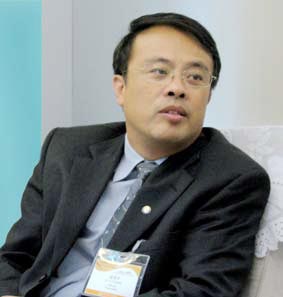Japan Denso: Striving for China's Common Rail Market
As the world’s third-largest auto parts supplier, Denso entered China in 1994, and almost all multinational automotive companies use Denso products. The auto parts market is a coveted big cake. According to the traditional method, the Japanese parts factory mainly provides support for the main engine factory. Compared with German and American manufacturers such as VW and U.S. General Motors, Toyota, Honda and other Japanese vehicle manufacturers have slowed their development in the Chinese market by half a beat. This indirectly leads to the development of Denso in China compared to Bosch and other European and American component manufacturers. passive. Although the start failed to preempt, but seeing the potential of China's high-pressure common rail market, Denso hopes to adopt active strategies to increase its market share in the Chinese market. When the reporter interviewed Yamada San, general manager of Denso (China) Investment Co., Ltd., he said that Denso should bring the latest technology to China, gradually localize in product manufacturing, quality management, and R&D, and begin to establish independent sales. Channels contribute to the development of China’s automobile society. A=Automotive Observer S=Yamada A: China's common rail market is very large. How do you see this market? S: In the global strategy for the DCR system, there are four production companies planned, located in Japan headquarters, Thailand, Hungary, and Changzhou, China. It is not difficult to see that there are three production companies arranged in Asia, which shows that Denso attaches importance to the Asian market. Asia is a high-growth market, and many countries are in economic development stage. The demand for commercial vehicles is huge. Nearly all commercial vehicles and parts and components companies in the world have set their sights on this place, and this provides a very common rail system. Broad space for development. The center of the Asian market is undoubtedly China. Only 70,000 heavy trucks were produced and sold in the Japanese market, and one company in China National Heavy Duty Truck was close to 100,000 in one year. The huge potential of China's common rail market is self-evident. A: The adoption of new technologies in Europe II and Europe III has a good prospect for common rail development. Can you talk about R&D on high-voltage common rails? S: As early as the early 1990s, Denki began to systematically study the diesel emission upgrades due to the need to upgrade its own domestic emissions regulations. After comparison of various technical solutions and tests of various working conditions, Denso finally determined the use of common rail technology to solve the problem of serious diesel exhaust pollution. In 1995, the world’s first batch of common rail products began to be assembled. In Hino Diesel, the overall effect is good, not only meet the requirements of emission regulations, but also has the ability to further upgrade. Since then, Denso has embarked on a new journey to develop a common rail system. A: Most of the diesel common rails were benefited from Bosch. They tasted the sweetness, but Denso has a much smaller share than Bosch. What do you think is the reason for this? S: The electric common rail system has a good sales performance in the global market. In 2008, it sold 2.5 million units, which accounted for 16% of the global market share, and ranked second only to Bosch. At the same time as achieving results, Denso is also clearly aware of the gap between itself and Bosch, the head of the common-rail industry. In fact, there is still a big gap between Denso and Bosch. The popularity of auto dieselization in Europe is very high, and this is precisely the main market of Bosch; and the main markets for Denso are in Japan and North America, and these two regions The dieselization of automobiles is less popular. A: So, what are the active strategies that Denso is currently adopting to increase its market share in the Chinese market? S: In order to grow in the future, we will carry out system reforms in terms of business, cost, and management, and contribute to the development of the Chinese automobile society. In terms of business, based on the existing customers, the Group will further expand its sales to the Chinese cars, making full use of Denso's global network and expanding sales to European, American and Korean cars. In the field of commercial vehicles, in response to the country's 3rd emission standards, Denso started production of common rail products in Changzhou in 2008, hoping to contribute to environmental standards. There is also the sale of bus air conditioners to contribute to the realization of a comfortable bus environment and intercity mobile traffic. In terms of cost, technology development is based on low cost and localization. Build a supply chain for producing competitive products. In terms of management, we started with quality management and strengthened the management of procurement sources. We hope to create an environment in which our employees can fully realize their capabilities and promote independent management. 